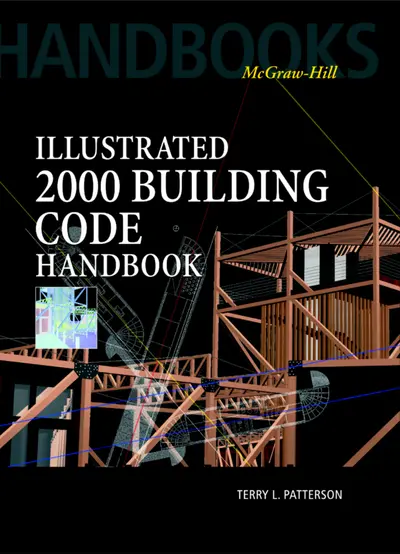My Account Details

ISBN10: 0071416021 | ISBN13: 9780071416023

Chapter 1: Administration.
Chapter 2: Definitions.
Chapter 3: Use and Occupancy Classification.
Chapter 4: Special Detailed Requirements Based on Use and Occupancy.
Chapter 5: General Building Heights and Areas.
Chapter 6: Types of Construction.
Chapter 7: Fire-Resistant-Rated Construction.
Chapter 8: Interior Finishes.
Chapter 9: Fire Protection Systems.
Chapter 10: Means of Egress.
Chapter 11: Accessibility.
Chapter 12: Interior Environment.
Chapter 13: Energy Efficiency.
Chapter 14: Exterior Walls.Chapter 15: Roof Assemblies and Rooftop Structures.
Chapter 16: Structural Design.
Chapter 17: Structural Tests and Special Inspections.
Chapter 18: Soils and Foundations.
Chapter 19: Concrete.
Chapter 20: Aluminum.Chapter 21: Masonry.
Chapter 22: Steel.
Chapter 23: Wood.
Chapter 24: Glass and Glazing.
Chapter 25: Gypsum Board and Plaster.
Chapter 26: Plastic.
Chapter 27: Electrical.
Chapter 28: Mechanical Systems.
Chapter 29: Plumbing Systems.
Chapter 30: Elevators and Conveying Systems.
Chapter 31: Special Construction.
Chapter 32: Encroachments into the Public Right of Way.
Chapter 33: Safeguards During Construction.
Chapter 34: Existing Structures.
Chapter 35: Referenced Standards.
Need support? We're here to help - Get real-world support and resources every step of the way.